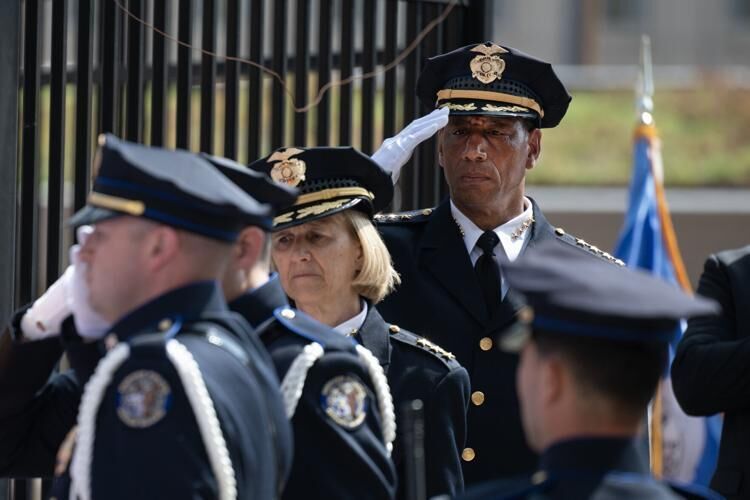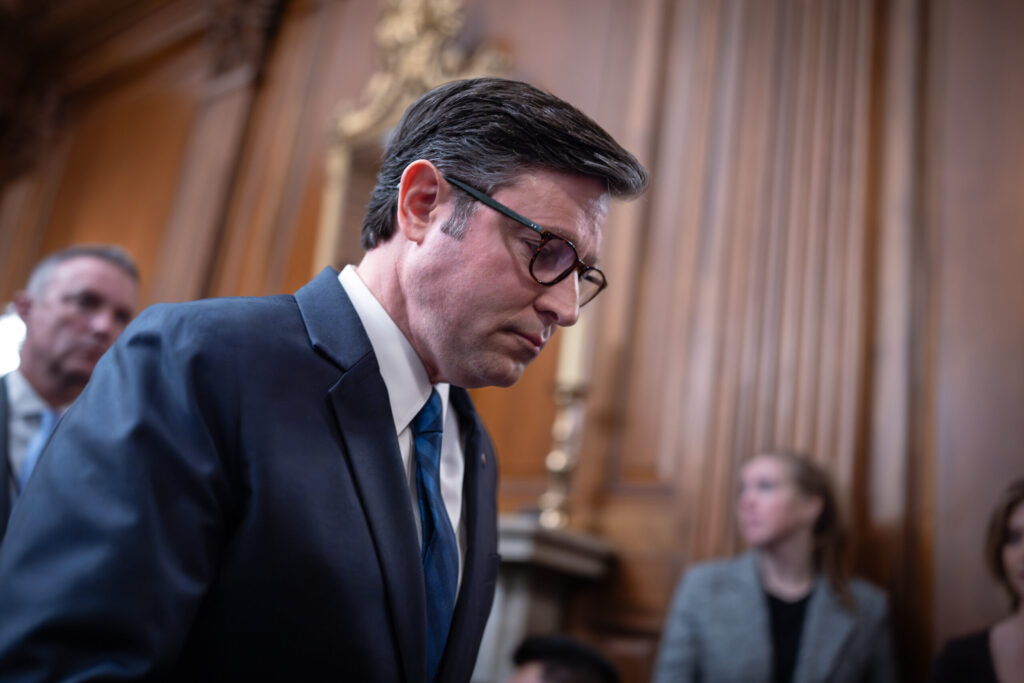As child care gap widens in Colorado, experts urge ‘creative’ ideas

Ever since the pandemic kept most families isolated in their own homes, the demand and availability of child care across Colorado and the country have changed drastically, with grave repercussions for companies and the state’s economy.
A new report from the Common Sense Institute and Executives Partnering to Invest in Children found that the gap in child care is growing — nearly 95,000 kids in Colorado need child care but can’t access it, which translates to about 38% of the state’s families.
“There is no greater stress for a working parent than finding childcare solutions that fit the needs of your family,” CSI President and CEO Kristin Strohm said at a forum that delved into the issue on Tuesday morning.
“If something falls through, your life is upended really quickly. As a mom of four, I know that reality all too well. I know that I cannot be productive, contribute, flourish in my job without good childcare support.”
A big part of the problem, the CSI report said, is the lack of affordability of child care. Colorado is the eighth-most-expensive place for child care in the U.S., costing families nearly 18% of their income. For a family with an infant and a 4-year-old, the cost spikes to 37.9% of the household income — more expensive than what an average family spends on a mortgage.
And that’s not the only challenge. The report also found that providers are struggling to keep their doors open, with 913 child care programs closing across Colorado between April 2018 and 2021. In the same time frame, only 486 programs opened their doors.
Colin Stewart, who operates STEM Child Care, said his center’s capacity sits at 75% but it’s not because few people are seeking child care.
“Demand is very strong — it is staffing that is our biggest challenge,” he said at the forum, which The Denver Gazette and Colorado Politics hosted. “Staffing, retention, training and productivity.”
Stewart said despite a significant pay increase, productivity among staffers is down, with as many as 20% calling in to say they can’t work for a variety of reasons, including getting sick with COVID-19.
Ultimately, Colorado’s child care challenges inhibit the state’s workforce. Indeed, Strohm and other experts noted the direct nexus between Colorado’s ability to fill its workforce needs and the availability of affordable child care.
Jansen Tidmore, president and CEO of Jefferson County EDC, said the pandemic and the challenges it posed, including in the area of child care, resulted in a realignment of priorities that occurred at the family level. Parents, he said, had to make a choice, and 5% of the workforce in the county left, an exodus of “qualified, talented” people.
And they haven’t really come back to the workforce, not at levels that the county — and the state — need, he said.
“Losing that talent and those minds — those that are willfully stepping aside due to something like child care, impacts our ability to create more jobs and bring in more companies,” he said.
“We have a mathematical problem when it comes to child care and how we align our expectations … to get back people back into workforce, and we’ve got to be more creative with our solutions,” he added.
Some companies have decided to take it upon themselves to offer child care to their employees.
Tawny Espinoza, vice president of business development at the Community Hospital in Grand Junction, said her hospital is investing to build a child care facility on the hospital’s campus, which she sees as a morale booster and concrete help for the hospital’s staff.
“Having the ability to provide onsite child care, it will be a game changer for us when we talk about recruitment and retention,” Espinoza said. “And we’re already seeing that — even though the facility isn’t yet open, when we are interviewing candidates from out of state or even in the area and they hear that potential that there is an option for child care coming, they light up.”
The state, in fact, has injected hundreds of millions of dollars into the child care industry. Gov. Jared Polis and legislators allocated $465 million for child care investments and grants.
They also approved legislation so that by fall 2023, all 4-year-olds in Colorado will be able to attend preschool for free. House Bill 1295 establishes a long-promised universal preschool program and a new Department of Early Childhood.
Rep. Colin Larson, R-Littleton, noted the energy and investments being poured into this arena.
He suggested allowing the programs being started or created to “come to fruition” — to effectively let them play out — hopeful they will start to make a difference.
“The office Early Childhood that we just instituted here is an enormous ground shift,” he said. “But those programs not have hit the ground and I don’t think they’re really seeped into the ecosystem.”
He added: “We should allow for the massive changes that we’ve made over the last few years to hit the ground, seep in, see what those actually look like, and then make course corrections.”















